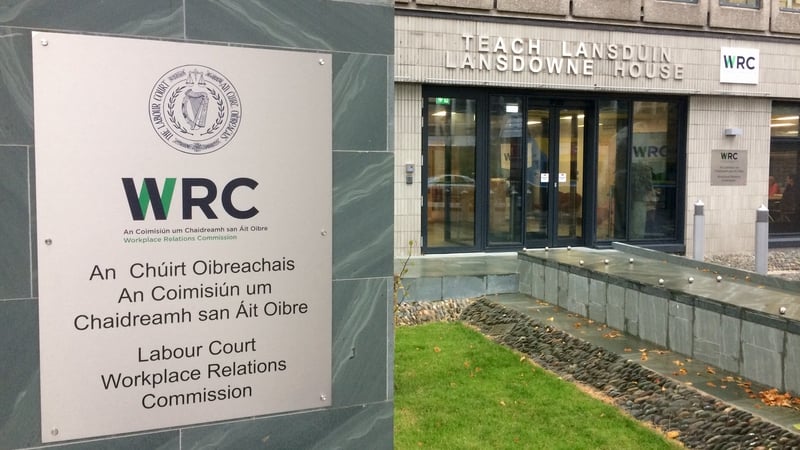The High Court has ruled that a man whose unfair dismissal case was rejected by the Workplace Relations Commission in breach of fair procedures cannot challenge the constitutionality of new rules for processing employment disputes introduced when the WRC was established in 2015.
A WRC Adjudication Officer had rejected the unfair dismissal claim of Tomasz Zalewski of North Strand Road in Dublin 3 from his job as assistant manager at Buywise Discount Store in 2016.
However, the decision was taken without any opportunity for Mr Zalewski to give oral evidence or to cross-examine his former employer.
Mr Zalewski's barrister, Peter Ward SC, had argued that the 2015 Act establishing the WRC and its procedures was constitutionally flawed, because hearings before adjudication officers are held in private, evidence is not heard on oath, there is no penalty for any person who gives false evidence and adjudication officers are not required to have any legal qualification or experience.
However, Mr Justice Charles Meenan ruled that because the WRC had conceded that the decision to dismiss his claim should be quashed, he no longer had the necessary legal standing to pursue his constitutional argument.
Mr Zalewski had been employed at Buywise Discount Store from March 2012 until 2016, when he was dismissed amid claims of gross misconduct, which he denied, including failing to follow policy for robbery prevention.
In May 2016, he lodged a complaint with the WRC for unfair dismissal and non-payment of wages in lieu of notice.
However, at a WRC hearing on 26 October 2016, which lasted around ten minutes, Mr Zalewski claimed that while the adjudication officer accepted written submissions from both sides, he was given no opportunity to give oral evidence to cross-examine witnesses on the employer side.
When the parties reconvened in December 2016, the adjudication officer stated that she had decided against Mr Zalewski and dismissed his complaint.
In April 2017, solicitors for the WRC wrote to Mr Zalewski saying there had been an "adminstrative error", and that the adjudication officer's decision had been filed as a "decision to issue" rather than "adjourned to further hearing".
The WRC said it sincerely regretted the error and that there was no intention to hear the complaint otherwise than in line with fair procedures.
It offered to consent to court orders quashing the original adjudication officer's decision, remit the complaint for a re-hearing before a different officer and to pay Mr Zalewski's costs.
The WRC then asked the court to overturn the grant of leave for the constitutional challenge on the grounds that the WRC had already conceded that the adjudication officer's decision should be quashed.
In today's judgment, Mr Justice Meenan said that the explanation of the adjudication officer's decision as having arisen from an administrative error was "all the more unacceptable" because the outcome of unfair dismissal claims can have profound consequences for people.
He noted evidence of Mr Zalewski's solicitor Eamon Hanrahan that in his experience, complaints at the WRC are often heard without any evidence adduced, and with no opportunity to test evidence via cross-examination.
However, he said this evidence to the effect that Mr Zalewski's case was not "an isolated incident" could not form the basis of a constitutional challenge.
He stated that if the WRC's own procedures were followed, they would have avoided this decision being taken and the court could not conclude that returning the case to the WRC would put Mr Zaleskwi in real danger of being adversely affected by the disputed law.
Mr. Zalewski's case challenging the decision was against the State, the WRC and the adjudication officer, with Buywise as a notice party to the proceedings.






